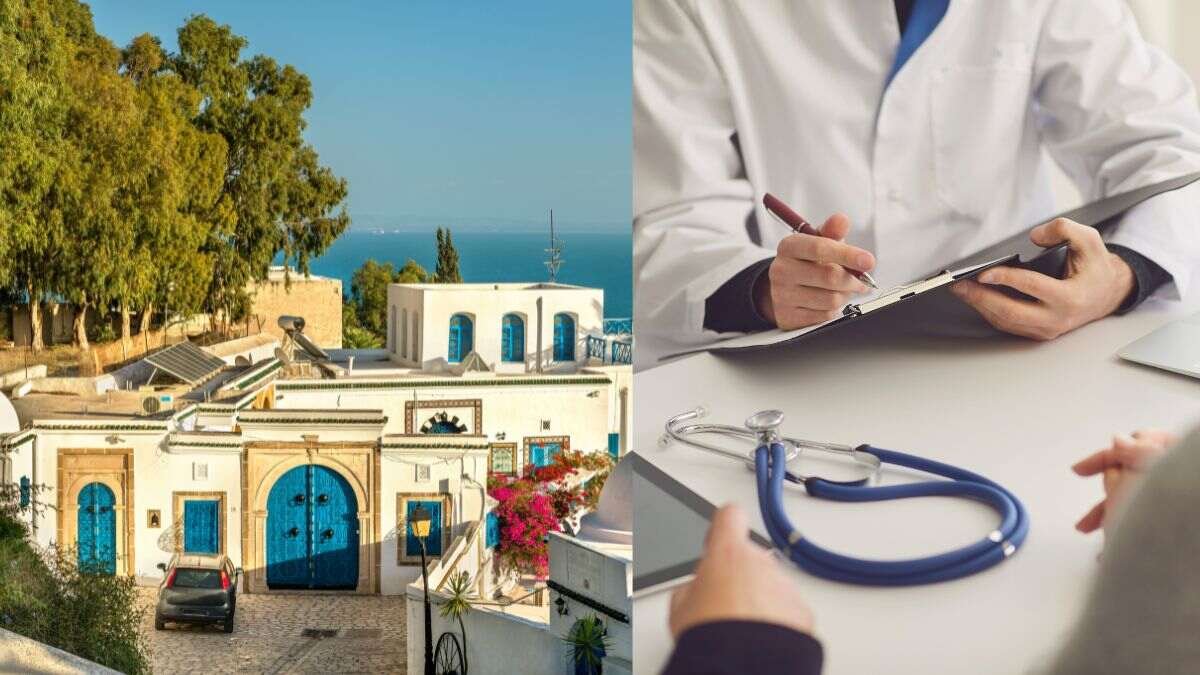Tunisia has emerged as a leading destination for medical tourism in Africa, attracting over 2 million foreigners annually. Despite economic challenges and government debt, the medical tourism sector in Tunisia has thrived, with authorities aiming to further expand this profitable industry. Private clinics and highly skilled medical professionals contribute to Tunisia’s success as a preferred medical tourism hub.
One such instance involves a fertility clinic in Tunis, where individuals like Bintou Yunoussa from Niger seek medical assistance for issues such as infertility. Yunoussa, recommended by a relative, opted for a private clinic in Tunis after unsuccessful treatments elsewhere. The thriving medical tourism industry in Tunisia extends beyond borders, with clinics catering to a diverse range of medical procedures, making it a sought-after destination for healthcare.
The success of Tunisia’s medical tourism sector is attributed to its specialized private clinics and proficient medical personnel. According to Nadia Fenina, a health ministry official, Tunisia ranks first in Africa concerning healthcare demand and supply. The country’s medical tourism industry has rebounded from pandemic-related challenges, generating approximately 3.5 billion dinars ($1.1 billion) in annual revenues, constituting half of Tunisia’s overall tourism income in the previous year.
Medical tourism’s interconnectedness with general tourism is emphasized by Fenina, as foreign patients often combine medical treatments with tourist activities. Tourism, accounting for nine percent of Tunisia’s GDP, plays a vital role in the country’s economy. With economic challenges and sluggish growth, medical tourism has become a significant contributor to Tunisia’s overall tourism sector.
The medical tourism sector caters to various treatments, including in vitro fertilization (IVF), attracting patients not only from North Africa but also from sub-Saharan African countries. Dr. Fethi Zhiwa, a specialist in infertility, highlights the clinic’s popularity, receiving patients from Western countries like Britain, Switzerland, and Canada. Affordable rates and the expertise of Tunisia’s fertility specialists contribute to the country’s appeal.
Cosmetic surgery is another significant aspect of medical tourism in Tunisia, attracting around 15 percent of all treatments for foreign patients. European medical tourists find Tunisia an attractive destination due to competitive prices and skilled practitioners. Mohamed, a Libyan patient, visits Tunisia biannually for cardiac check-ups, praising his Tunisian cardiologist for saving his life. He emphasizes the strong bond formed with his doctor and the opportunity to relax in Tunisia’s scenic locations.
Tunisia’s tourism potential remains substantial, provided certain obstacles are overcome. Efforts are underway to establish direct flights to more African destinations and simplify visa procedures, including the implementation of medical visas. The health ministry is also focusing on improved coordination between medical tourism agencies, healthcare providers, and stakeholders. Collaboration with the private sector aims to create facilities tailored to the preferences of an elderly European clientele.
Despite challenges, Tunisia’s medical tourism industry continues to grow, offering a blend of quality healthcare services and tourist experiences. While anti-migrant sentiments have risen in the country, medical tourists like Yunoussa express a sense of welcome and comfort, highlighting the positive aspects of Tunisia’s thriving medical tourism sector.
Paris sightseeing
Book Paris activities
Louvre museum paris
Paris limousine rental
Rolls Royce Paris
Eiffel Tower Paris
Airport Transfer Paris
Book Paris Taxi
Seine River Cruise
Wine Tasting Paris
Paris luxury hotels
Switzerland luxury hotels
Europe Car rental
Europe coach rental
Paris Limousine
Dior Paris
Beauvais Airport transfer
